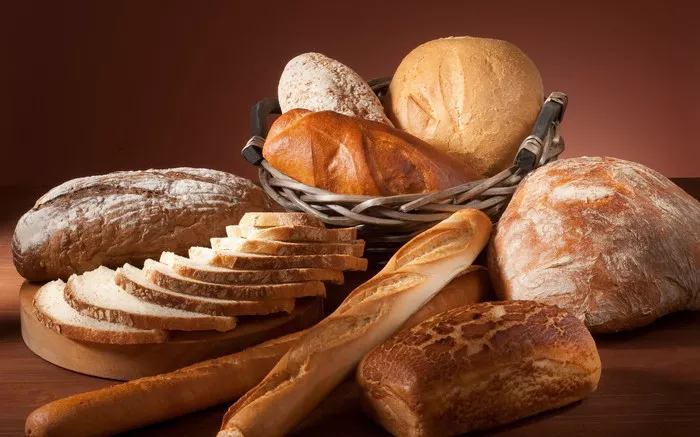Warrens Bakery, a renowned name in the bakery industry, has a rich heritage dating back to 1860 when it first opened its doors in Cornwall, England. With a legacy spanning over a century, Warrens Bakery has established itself as a pioneer in crafting delicious pastries, pies, sandwiches, and cakes. Boasting a blend of traditional recipes and innovative flavors, Warrens Bakery has garnered a loyal customer base and earned a reputation for quality and excellence.
Warrens Bakery Franchise Initial Investment
Investing in a Warrens Bakery franchise offers entrepreneurs an opportunity to be part of a celebrated brand with a proven track record. However, prospective franchisees must be prepared to make an initial investment to kickstart their journey. The initial investment for a Warrens Bakery franchise typically ranges from $150,000 to $300,000, depending on various factors such as location, size of the outlet, and local market conditions.
This initial investment covers expenses such as franchise fees, equipment, leasehold improvements, and initial inventory. The franchise fee for Warrens Bakery is around $25,000 to $50,000, granting franchisees the right to use the brand name, trademarks, and operating systems. Additionally, franchisees are required to allocate funds for equipment purchases, including ovens, display cases, refrigeration units, and other essential bakery machinery.
Leasehold improvements constitute a significant portion of the initial investment, as franchisees may need to renovate or customize the chosen premises to align with Warrens Bakery’s standards and ambiance. Depending on the condition of the space and the extent of renovations required, leasehold improvements can vary greatly in cost. Franchisees should also budget for initial inventory purchases to ensure they have an adequate supply of ingredients and products to meet customer demand from day one.
Warrens Bakery Franchise Ongoing Expenses
Running a Warrens Bakery franchise entails ongoing expenses that must be factored into the operational budget. These expenses include rent, utilities, payroll, royalty fees, marketing, and supplies. Rent is a significant recurring cost and varies depending on the location and size of the bakery outlet. Franchisees must budget for monthly lease payments as per the terms of their rental agreement.
Utilities, including electricity, water, and gas, contribute to the overhead costs of operating a bakery establishment. Franchisees should anticipate fluctuations in utility expenses based on seasonal variations and changes in consumption patterns. Payroll expenses encompass salaries for staff members, including bakers, sales associates, and administrative personnel. Labor costs are influenced by factors such as local wage rates, employee benefits, and staffing levels.
Royalty fees are a percentage of the franchisee’s gross sales that are paid to the franchisor on an ongoing basis. These fees typically range from 4% to 6% of gross sales and contribute to the continued support and development of the Warrens Bakery brand. Franchisees benefit from ongoing training, marketing initiatives, and operational assistance funded by royalty fees.
Marketing expenses are essential for promoting the Warrens Bakery brand and attracting customers to the franchise outlet. Franchisees may allocate a portion of their budget towards local advertising, social media campaigns, and promotional events to drive foot traffic and increase sales. Additionally, franchisees must purchase supplies such as ingredients, packaging materials, and cleaning supplies to maintain daily operations.
Warrens Bakery Franchise Financial Projections and ROI
Before committing to a Warrens Bakery franchise, prospective franchisees often conduct financial projections to assess the potential return on investment (ROI). Financial projections involve forecasting revenue, expenses, and profitability over a specified period, typically the first three to five years of operations. By analyzing key financial metrics, franchisees can make informed decisions about the viability of the franchise opportunity.
Revenue projections are based on factors such as foot traffic, average transaction value, and product mix. Franchisees may utilize market research, demographic analysis, and sales data from existing Warrens Bakery outlets to estimate future sales volumes. By projecting revenue growth over time, franchisees can set realistic targets and allocate resources effectively.
Expenses projections encompass both fixed and variable costs associated with operating a Warrens Bakery franchise. Fixed costs, such as rent and royalty fees, remain relatively stable regardless of sales volume, while variable costs, such as utilities and payroll, fluctuate based on business activity. Franchisees must accurately estimate expenses to avoid cash flow issues and maintain profitability.
Profitability projections measure the net income generated by the franchise after deducting all expenses from total revenue. Franchisees calculate key financial ratios such as gross profit margin, operating margin, and return on investment to evaluate the financial health of the business. A positive ROI indicates that the franchise investment is yielding returns that exceed the initial capital outlay.
Conclusion
In conclusion, investing in a Warrens Bakery franchise offers entrepreneurs the opportunity to be part of a well-established brand with a loyal customer base and a proven business model. However, prospective franchisees must carefully evaluate the initial investment, ongoing expenses, and financial projections to ensure the franchise opportunity aligns with their goals and expectations. By conducting thorough due diligence and seeking professional advice, franchisees can make informed decisions and maximize their chances of success in the bakery industry.

